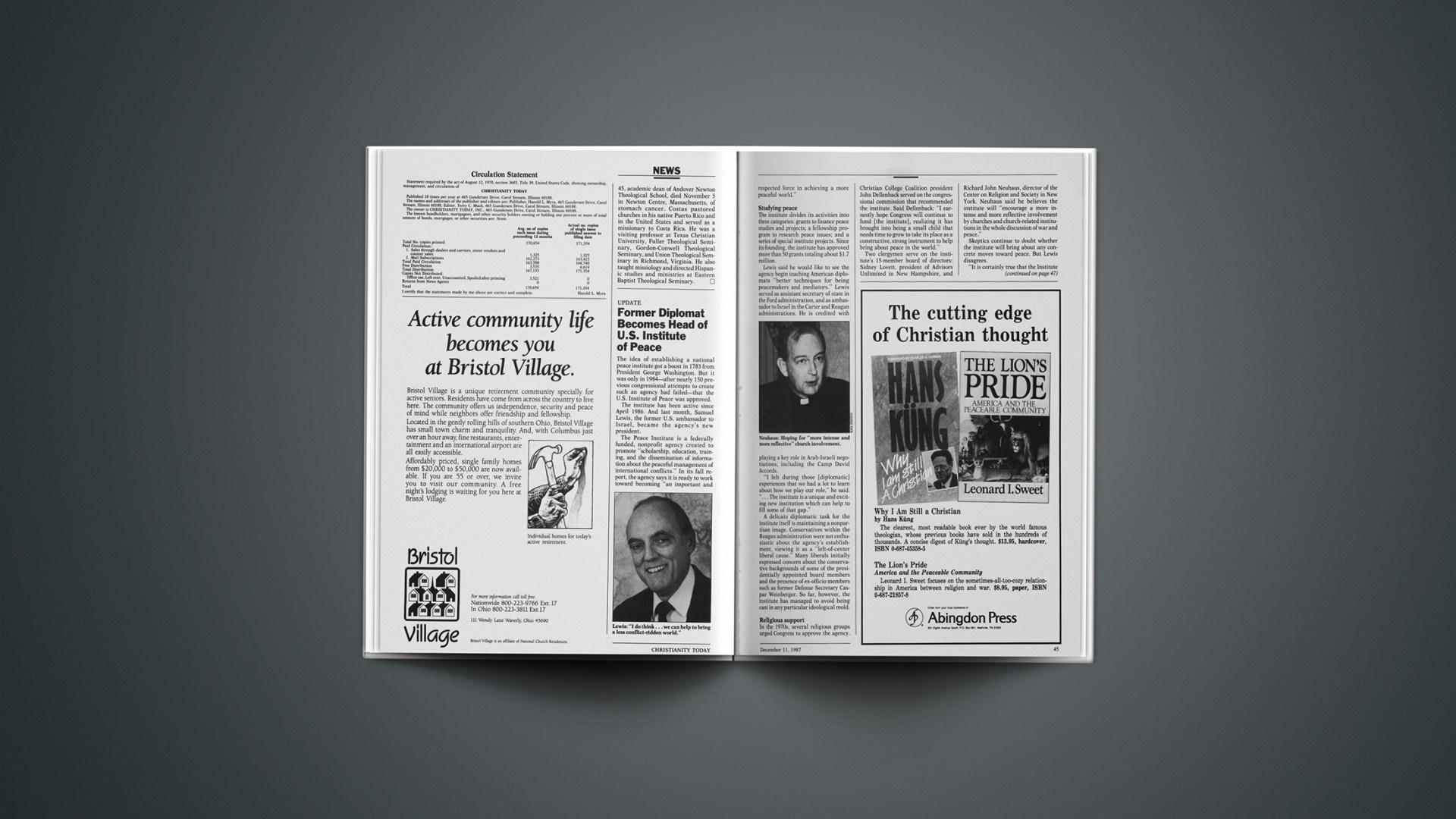The idea of establishing a national peace institute got a boost in 1783 from President George Washington. But it was only in 1984—after nearly 150 previous congressional attempts to create such an agency had failed—that the U.S. Institute of Peace was approved.
The institute has been active since April 1986. And last month, Samuel Lewis, the former U.S. ambassador to Israel, became the agency’s new president.
The Peace Institute is a federally funded, nonprofit agency created to promote “scholarship, education, training, and the dissemination of information about the peaceful management of international conflicts.” In its fall report, the agency says it is ready to work toward becoming “an important and respected force in achieving a more peaceful world.”
Studying Peace
The institute divides its activities into three categories: grants to finance peace studies and projects; a fellowship program to research peace issues; and a series of special institute projects. Since its founding, the institute has approved more than 50 grants totaling about $1.7 million.
Lewis said he would like to see the agency begin teaching American diplomats “better techniques for being peacemakers and mediators.” Lewis served as assistant secretary of state in the Ford administration, and as ambassador to Israel in the Carter and Reagan administrations. He is credited with playing a key role in Arab-Israeli negotiations, including the Camp David Accords.
“I felt during those [diplomatic] experiences that we had a lot to learn about how we play our role,” he said. “… The institute is a unique and exciting new institution which can help to fill some of that gap.”
A delicate diplomatic task for the institute itself is maintaining a nonpartisan image. Conservatives within the Reagan administration were not enthusiastic about the agency’s establishment, viewing it as a “left-of-center liberal cause.” Many liberals initially expressed concern about the conservative backgrounds of some of the presidentially appointed board members and the presence of ex-officio members such as former Defense Secretary Caspar Weinberger. So far, however, the institute has managed to avoid being cast in any particular ideological mold.
Religious Support
In the 1970s, several religious groups urged Congress to approve the agency.
Christian College Coalition president John Dellenback served on the congressional commission that recommended the institute. Said Dellenback: “I earnestly hope Congress will continue to fund [the institute], realizing it has brought into being a small child that needs time to grow to take its place as a constructive, strong instrument to help bring about peace in the world.”
Two clergymen serve on the institute’s 15-member board of directors: Sidney Lovett, president of Advisors Unlimited in New Hampshire, and Richard John Neuhaus, director of the Center on Religion and Society in New York. Neuhaus said he believes the institute will “encourage a more intense and more reflective involvement by churches and church-related institutions in the whole discussion of war and peace.”
Skeptics continue to doubt whether the institute will bring about any concrete moves toward peace. But Lewis disagrees.
“It is certainly true that the Institute of Peace is not going to bring universal peace to the world,” he said. “… I’m afraid that from the earliest years of biblical history, violent conflict between nations and within nations has been the norm, and I don’t suppose that unless man’s nature changes it’s likely to be eradicated. But I do think … we can help to bring a less conflict-ridden world by learning better about how conflict is contained, managed, and sometimes eliminated.”










